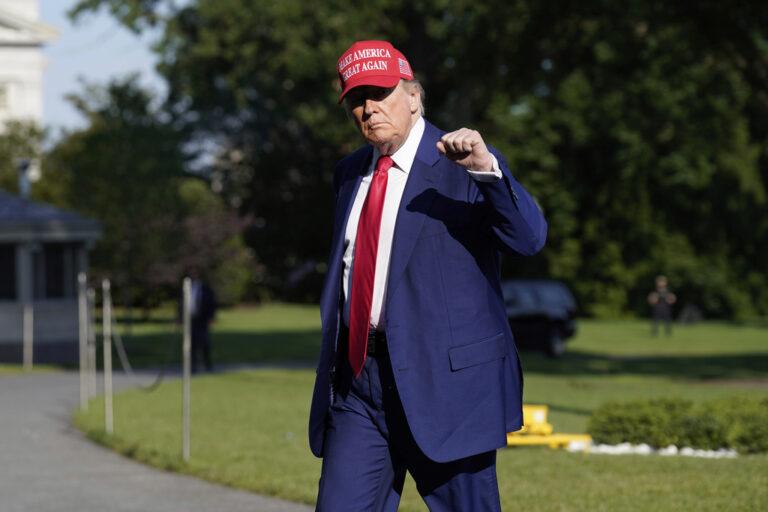Examining the Rising Calls for Federal Oversight in Chicago and Washington,D.C.
Federal Oversight in Chicago: Challenges to Local Self-Governance
The prospect of federal authorities stepping into Chicago’s municipal affairs has ignited intense discussions among policymakers, civic leaders, and residents alike. Many fear that such federal involvement could significantly diminish the decision-making power traditionally held by local officials, perhaps weakening the democratic frameworks painstakingly developed over many years. This scenario raises alarms about setting a precedent that might encourage similar federal takeovers in other large cities grappling with governance difficulties.
Among the primary apprehensions are:
- Compromised local accountability: Citizens express concern that federal oversight might reduce their ability to influence policies directly impacting their neighborhoods.
- Risk of political maneuvering: There is skepticism that federal intervention could be driven by political agendas rather than genuine administrative needs, deepening community divisions.
- Disruption of reform efforts: Ongoing local programs aimed at crime reduction and economic growth may face delays or redirection under federal control.
| Concern | Possible Outcome | Community Reaction |
|---|---|---|
| Local Autonomy | Decreased authority for city leaders | Advocacy for maintaining municipal independence |
| Public Trust | Increased doubt about federal intentions | Organized public discussions and demonstrations |
| Policy Stability | Interruption of social and economic initiatives | Calls for cooperative governance models |
Potential Effects of a Federal Takeover in Washington, D.C. on Urban Management
The idea of a federal takeover in the nation’s capital signals a profound transformation in urban governance, potentially centralizing authority and diminishing the influence of locally elected representatives. This shift could lead to a more direct federal role in managing critical issues such as crime control, housing policy, and public health, with the goal of rapidly addressing persistent urban challenges. While supporters argue that federal intervention is essential for restoring order and enhancing administrative efficiency,opponents warn it may erode democratic accountability and local self-determination.
Key domains likely to experience change include:
- Crime and Safety: Enhanced federal law enforcement presence and resource deployment to tackle violence and illegal activities.
- Housing and Progress: Possible overhaul of affordable housing strategies, including zoning reforms and development oversight.
- Fiscal Oversight: Federal control over budgeting processes could shift priorities toward law enforcement and infrastructure upgrades.
| Policy Area | Current Local Approach | Potential Federal Strategy |
|---|---|---|
| Public Safety | Community-oriented policing | Expanded federal enforcement operations |
| Housing | Locally driven affordable housing programs | Implementation of national housing policies |
| Budget Management | City-approved expenditures | Federal oversight of fiscal allocations |
Legal and Political Complexities Surrounding Federal Interventions
The increasing talk of federal involvement in Chicago and Washington, D.C. has sparked vigorous debate about the constitutional limits of federal power. Legal scholars highlight that any such intervention must respect the principles of federalism, ensuring that executive actions do not overstep boundaries without clear legislative backing or state consent. The challenge lies in balancing the need for effective crime control and governance improvements with the protection of civil liberties and local democratic processes. Critics warn that unilateral federal actions could provoke legal battles and alienate local communities.
Major legal and political hurdles include:
- Constitutional constraints: Federalism limits federal authority absent cooperation from state or local governments.
- Judicial oversight: Courts may intervene to prevent unconstitutional executive overreach.
- Political opposition: Local officials and residents frequently enough resist federal takeovers, citing threats to democratic governance.
- Public sentiment: Community trust and acceptance are critical to the success of any federal initiative.
| Challenge | Potential Outcome |
|---|---|
| Ambiguous Legal Authority | Litigation and injunctions delaying federal actions |
| Federal-State Jurisdictional Conflicts | Increased intergovernmental tensions |
| Community Resistance | Reduced cooperation and public support |
| Political Polarization | Divided voter reactions impacting elections |
Strategies for Harmonizing Federal Authority with Local Autonomy
To foster a lasting balance between federal oversight and municipal independence, it is crucial to prioritize cooperative frameworks rather than confrontational approaches. Federal intervention should be a measure of last resort, reserved for situations where local governments fail to uphold constitutional responsibilities or ensure public safety. Establishing joint task forces, mediation panels, and collaborative policy development can build trust and facilitate shared governance, preserving local autonomy while addressing national priorities.
- Establish clear legal standards: Define specific criteria that justify federal involvement.
- Maintain open dialog: Ensure ongoing dialogue and consultation with city officials.
- Implement accountability structures: Create oversight committees to monitor the effects of federal actions.
| Governance Level | Primary Duties | Oversight Bodies |
|---|---|---|
| Federal | National security, constitutional enforcement | Congress, judiciary |
| Local | Community policing, social programs | City councils, citizen advisory boards |
Additionally, bolstering the capabilities of municipal governments through targeted federal grants and technical support can empower local leaders to manage complex challenges independently. By strengthening local institutions without compromising necessary federal oversight, a balanced governance model emerges-one that respects community-specific needs while upholding national cohesion. This approach aligns with democratic ideals and promotes stability through partnership rather than imposition.
Conclusion: Navigating the Future of Federal and Local Relations
As political tensions rise, former President Donald Trump’s calls for federal intervention in Chicago and a government takeover in Washington, D.C. highlight the ongoing struggle over the balance of power between federal and local authorities. These developments reflect deep-seated divisions regarding public safety and governance that continue to influence national conversations. Observers and stakeholders alike will be watching closely as these debates evolve, shaping the future landscape of urban policy and federalism in the United States.





